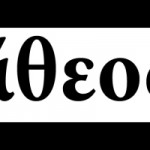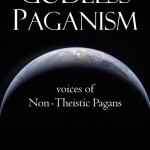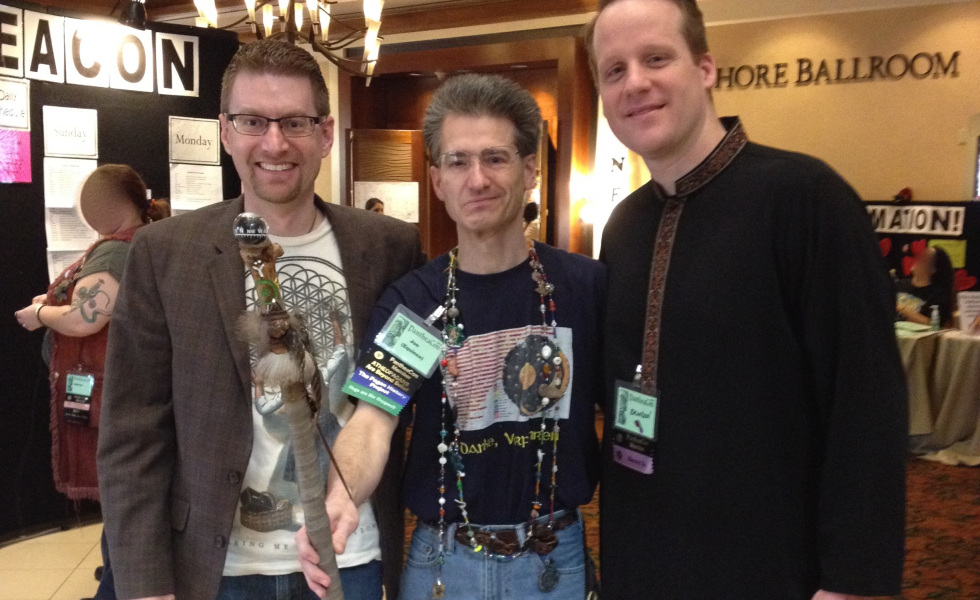Poetry heals the wounds inflicted by reason.
— Novalis
My wife hates poetry. I think she feels intimidated by it, like it’s a secret someone is keeping from her. I like poetry. Now I am no T.S. Elliot fan, but I love Rilke and Mary Oliver. The first poet I fell in love with was Jacques Prevert, who I was introduced to in high school French class. I just find Elizabeth Barrett Browning’s “How Do I l Love Thee” so much more moving than the simple words “I love you.”
How do I love thee? Let me count the ways.
I love thee to the depth and breadth and height
My soul can reach, when feeling out of sight
For the ends of Being and ideal Grace.
I love thee to the level of everyday’s
Most quiet need, by sun and candle-light.
I love thee freely, as men strive for Right;
I love thee purely, as they turn from Praise.
I love thee with a passion put to use
In my old griefs, and with my childhood’s faith.
I love thee with a love I seemed to lose
With my lost saints, — I love thee with the breath,
Smiles, tears, of all my life! — and, if God choose,
I shall but love thee better after death.
Not my wife though. She’s a give-it-to-me-straight kind of gal. It’s not just poetry either. When she had to write about what she had done in the last 10 years for her high school reunion, she did it in bullet-point form. (It’s just one more way in which we reverse gender stereo-types: I like poetry and shopping, and she hates both.)
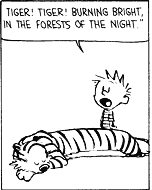
At the heart of my wife’s dislike of poetry is, I think, an assumption that there is a meaning which is hidden by the poetry and she is expected to divine. And I think that’s the wrong way to read poetry. Poetry, for me, is evocative, rather than signifying. It’s not supposed to mean anything; it’s supposed to evoke an experience, a mood, an emotion, or a memory.
Poetry recently came up in a guest blog post at Humanistic Paganism in which the author, Jake Diebolt, an atheist, asked why humanistic pagans “bother” with ritual if they don’t believe in gods. He accused humanistic pagans of being “hypocritical” and argued that ritual is unproductive navel-gazing, comparable to drug use, as well as “dehumanizing”. I responded by comparing ritual to poetry. I’m going to reproduce part of my response here.
In response to the question, “Why bother to do ritual?”, I would ask, “Why create art?” Why paint a painting when you can take a photograph? (although photographs can be art also). Why write a poem or a story when you can outline a logical argument? Why dance? Why sing? That’s what ritual is for me: art. And in Sabina Magliocco’s words, “Ritual is my chosen art form.” It is dance and poetry and song all wound together.
Jake wrote:
“Since HP [Humanistic Paganism] isn’t meant to be a literalist movement, I’m assuming a lot of people reading and contributing don’t believe that gods or spirits actually exist. The word ‘metaphorically’ comes up a lot, but all that really means is ‘I find this to be a useful and/or clever philosophical/literary construct to get my point across, so there’. I set my hand to writing fiction occasionally, so I can appreciate a good metaphor as well as the next person. I just don’t find them particularly relevant to real life.”
I think it’s a mistake to treat ritual or poetry as metaphor, if by metaphor you mean language intended to signify something indirectly. For Jake, it seems, fiction is a clever literary construct “to get a point across”, a rhetorical flourish if you will. But for me, fiction, poetry, and ritual are more than rhetorical flourishes, and they are more than a means for “getting a point across”. Poetry and ritual are best understood, not as metaphor, as pointing to a referent, but rather, in Heidegger’s sense of the word, as opening a horizon of possibility through language. B.T. Newberg explains it this way:
“The allegorical tradition has a venerable pedigree indeed. However, I can’t help but feel that each in their own way has somehow gotten it wrong. Interpreting myth x to signify meaning y has an air of finality to it that silences other interpretations.
“What myths really are, in my opinion, are deeply resonant images to which the human imagination responds by creating meaning. In the act of searching for the “true” meaning, a new meaning is created. Myths are not reservoirs containing meanings waiting to be found; they are creative stimuli midwifing the birth of the new. Each allegorist is startled to see in it something no one else has, and feels compelled to go tell it on the mountain. In truth, however, they are simply participating in an eternal process of meaning-making.”
Ritual and poetry point to something that cannot be fully expressed in representational language. Or rather, instead of pointing us to something, ritual and poetry invite us to experience something. The meaning of good poetry can never be exhausted by explanation for this reason. And the same is true of ritual.
I am indebted for this conception of poetry not only to Heidegger, but also to advocates of what has come to be called “theopoetics”, a way of using language to create space for the reader to encounter the mystery which has traditionally been called God. In his essay, “Theopoetics: that the dead may become gardeners again”, Matt Guynn contrasts theo-logical language with theo-poetical language. The former, like all logical language, approaches metaphor by trying to eliminate the “numen”, the mysterious, to get at the “meaning”. Theopoetry, in contrast, uses mystery and metaphor to evoke an experience, rather than to point directly toward a single “meaning”. Poetry is an event in and of itself, one which draws the reader into a space where meaning happens, where the divine is manifest.
I think this is what Heidegger, an atheist, meant when he said in his famous 1966 Der Spiegel interview that through poetry “we prepare a readiness for the appearance of a god”; and what Rilke meant when he advised his young poet to try to “live the questions”, rather than seeking out the answers:
“Don’t search for the answers, which could not be given to you now, because you would not be able to live them. And the point is to live everything. Live the questions now. Perhaps then, someday far in the future, you will gradually, without even noticing it, live your way into the answer.”
— Rainer Marie Rilke, Letters to a Young Poet
Reading poetry is not like reading a philosophical argument, in which the reader tries to “get at” the author’s meaning. Poetry is, rather, “postmodern”, in the sense that it displaces the authority of the author. Meaning is derived, not from the author’s intent, but from the experience of the reader of the poem.
David Miller writes in his essay, “Theopoetry or Theopolitics?” that theopoetics should not be confused with “theopoetry”. Theopoetry is just poetry about God, merely an “artful, imaginative, creative, beautiful and rhetorically compelling” way of speaking about God. In contrast, for Miller, theopoetics is more radical, even subversive. Miller writes that theopoetics cannot be understand apart from the “death of God”, or the death of metaphysics, an understanding of meaning “as severed from any dependencies on transcendental referents”. Theopoetics are therefor “strategies of human signification in the absence of fixed or ultimate meanings accessible to knowledge or faith.” Miller cites Thomas Altizer, the “death of God” theologian: “To say yes to absolute nothingness is to discover the plenitude in the void.” While “theology ends with the death of god” (Altizer), Miller affirms that “theopoetics begins when theology ends.” And it is in literature and art that meaning is redeemed from the death of God.
Miller goes on to explain that poetry is, therefore, not “mere metaphor, simile without the word ‘like'”. He explains:
“It is a commonplace that poets do not like critics to tell people what their poems mean. The poet’s complaint not only has as its rationale that poems have multiple meanings and cannot be limited to singular signification. It may also be linked to the sentiment of Archibold MacLeish in his “Ars Poetica”: “A poem should not mean/But be.”
Poetry is, therefore, an “occurrence” or, as Scott Cairns writes, an “event of its own”. This is how I understand ritual too. Not as “mere metaphor”, but as an event, a way of “preparing a readiness”, of trying to “live the questions”, so as to “discover the plenitude in the void”.
So when I invoke a deity in ritual, I am not signifying an idea that I have personified, i.e., Dionysos = wine. I am, rather, evoking an experience, the experience of ecstasy for example, in the same way art is intended to evoke an experience, an experience that transcends representational thinking. Ritual isn’t about pretending the gods are real, any more than a painting of a tree is a pretend tree. Ritual is art, and art is, I believe, one of the most human things that we do. And it is partly for this reason that I feel justified in calling my paganism “humanistic”.
Ironically, I think in his statement above Jake makes the same mistake as the theistic literalists. Both approach religious language from a “metaphysical” perspective on meaning, one that is dependencies on “transcendental referents”. Although the theistic literalist believes in God and Jake does not, both assume that the meaning of language derives from its reference to a an object which exists independent of human subjective experience. Religious language is meaningful to the theistic literalist because he believes in the existence of God as some thing “out there”, a transcendent object; while Jake does not experience the language as meaningful because he does not believe in God as a transcendent object. But both assume that the meaning religious language depends on the existence of God (or gods) as a transcendent object(s).
While Jake is atheistic with regard to the existence of God, he is still, in a sense, theistic with regard to religious language. He is still stuck in a theo-logical mode of discourse. As Miller explains, if you take the death of God seriously, it also means the death of ultimate meaning. The death of ultimate meaning is an invitation to theopoetics, a mode of discourse avoids answers, dwells comfortably in ambiguity, and invites discourse, rather than seeking to end it, as does theo-logical language. In order to appreciate ritual and poetry, Jake must take his atheism further.
In her book, Alpha and Omega, Jane Ellen Harrison contrasted theology and “religion”, by which she meant ritual, in the same way that I am contrasting theology and theopoetics. She writes:
“To be an Atheist, to renounce eikonic theology, is to me personally almost an essential of religious life. I say this in no spirit of paradox, but as a matter of deep conviction. The god of theology is simply an intellectual attempt to define the indefinable; it is not a thing lived, experienced; it almost must be a spiritual stumbling block today. … It is not only that the particular forms of theology are dead, but that the idea of theology – i.e., a science of the unknowable – is, if not dead, at least, I venture to think, dying. God and reason are contradictory terms.”
Although writing well before Altizer, both were influenced by Nietzsche’s notion of the death of God. For Harrison, the meaning of religion, or as she meant it, ritual, is to be found in the experience of the indefinable, not in intellectual attempts to define it. She went on to write that “all theology is but a thinly-veiled rationalism, a net of illusive clarity cast over life and its realities”, whereas “religion [ritual] is our reaction to the whole, the unbounded whole.” “Theology,” she writes, “is the letter that killeth, religion the spirit that maketh alive.” This is why she states that one must be an atheist to be religious. To be “atheist” for her meant to renounce “eikonic theology”, that is representational thinking about God.
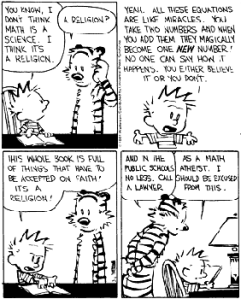
What this means is that my wife should not be looking for the meaning of a poem, and Jake should not be looking in the sky for the gods invoked in ritual. Jake argues that humanistic or atheistic ritual is hypocritical because the humanist/atheist does not believe in literal god-beings. I think David Miller and Jane Harrison would respond that Jake is not enough of an atheist to appreciate the meaning of ritual and poetry in the context of the death of God. The death of God is not the death of a God as a being. It is the death of all attempts to transcend our human situation and achieve absolute knowledge. While this might lead one to nihilism, it is also an invitation to discover “the plenitude in the void”. It is an invitation to poetry and to theopoetics. It is an invitation to create meaning (“Poetry” derives from poiesis, which means “to make”) through our human experience.
And that is why I “bother” with ritual.






